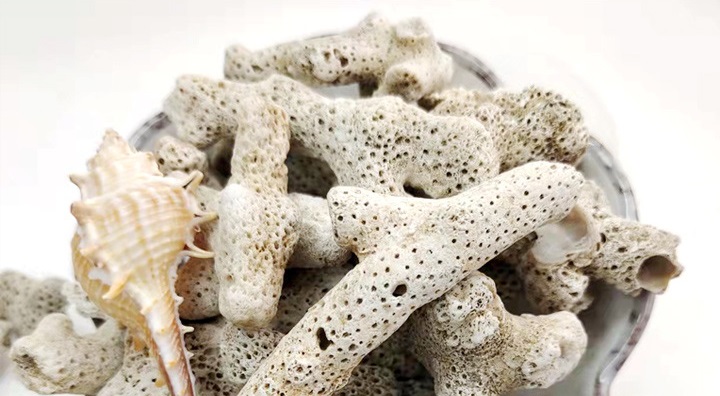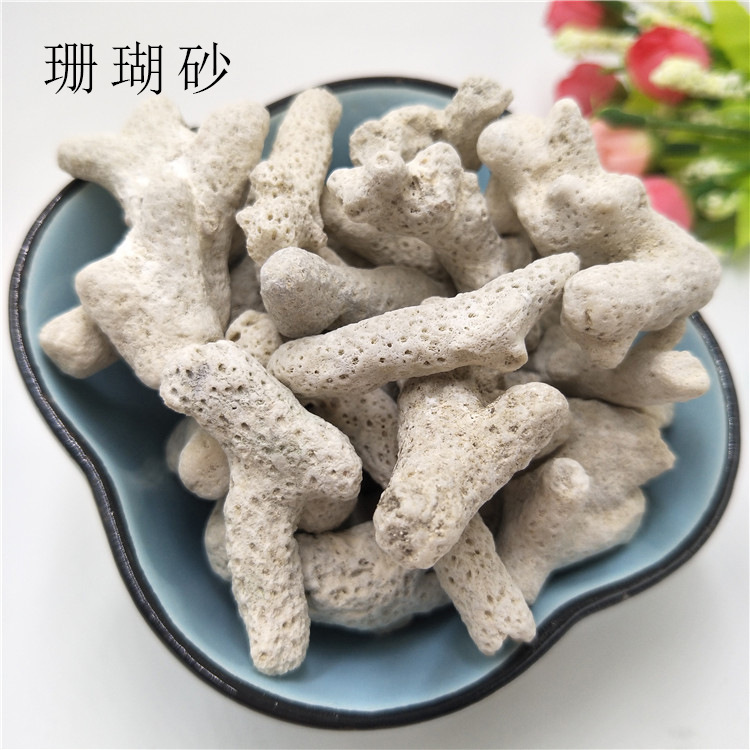
Coral bone (CHA) is a bone regeneration material made from natural coral.
Properties: Coral sand due to alkaline substances, the pH value of its filtration is generally 7.0 ~ 8.5, the continuous release of calcium ions, magnesium ions can provide high hardness and stable pH for the survival of Marine organisms, so it is suitable for the cultivation of Marine fish in the seawater filtration system. It needs to be replaced after 8-16 months of use. Due to the rich pore structure, it can also be used as a carrier of biological filtration system to culture nitrifying bacteria in large quantities. It is a natural Marine filter material, characterized by abundant micropores, suitable for the survival of a large number of biochemical bacteria, and can be used as a filter material for the lower (inner) layer.

Application: Coral sand was used to replace natural river sand to design the mix ratio of concrete. The folding strength, compressive strength, splitting tensile strength, drying shrinkage and early cracking resistance of coral sand concrete were systematically studied. Meanwhile, river sand concrete with the same mix ratio parameters was compared. In addition, the durability of coral sand concrete, such as chlorine ion permeability resistance, carbonization resistance and the microstructure of hydration products were also analyzed. The test results show that the compressive strength of coral sand concrete is lower than that of river sand concrete, but the bending strength and splitting tensile strength are not different. The drying shrinkage, early cracking resistance, chloride permeability resistance and carbonization resistance of coral sand concrete are better than those of river sand concrete. The bonding force in the transition zone of coral sand is greater than that of river sand concrete due to its porosity, which greatly improves the structural properties of its interface.

Share
-
Chlorolite is obtained from zeolite ore by high temperature sintering and dehydration treatment.NewsMay.24,2024
-
The main component of talc is magnesium silicate containing talc water,NewsMay.22,2024
-
Alumina is a high-hardness compound commonly used in the manufacture of refractory materials.NewsMay.20,2024
-
Hollow glass beads are tiny, hollow glass spheres,NewsMay.16,2024
-
Fused quartz is the amorphous (glassy) state of silicon oxide (quartz, silica).NewsMay.09,2024
-
Vermiculite is a natural, inorganic, non-toxic mineral that expands under high temperature.NewsApr.09,2024






